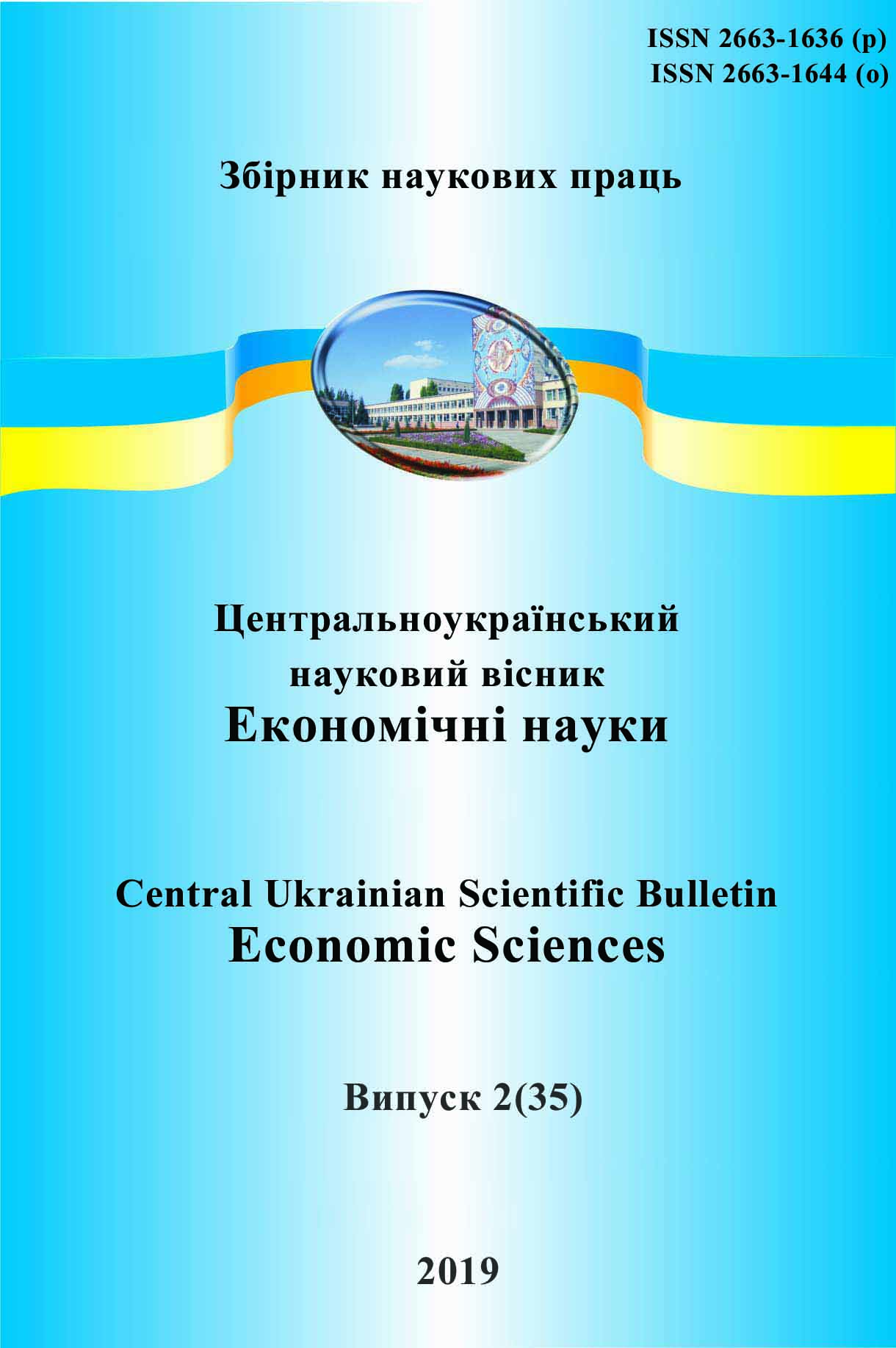Теоретичні підходи щодо визначення сутності трансферу освітніх знань у системі вищої освіти
Theoretical Approaches to Determine the Essence of Transfer of Educational Knowledge in the System of Higher Education
Author(s): Oleksandr Levchenko, Anna KryvorotenkoSubject(s): Social Sciences, Economy, Education, National Economy, Higher Education , Human Resources in Economy, Socio-Economic Research
Published by: Центральноукраїнський національний технічний університет
Keywords: knowledge transfer; knowledge; knowledge transfer center; innovation; quarter-helix model; commercial transfer;
Summary/Abstract: The purpose of the article is to study the mechanism of knowledge transfer at the current stage of development of the domestic economy, as one of the main principles of cooperation of major players in the economic market. Achieving such a result is possible only with the cooperation of resources and powers of central, regional authorities, local self-government, scientific institutions, educational institutions and enterprises, as well as combining their target guidelines in a single system. The article analyzes the current state of the mechanism of knowledge transfer in the world and in Ukraine. Knowledge transfer is no easy task and is not something completed overnight, but with careful preparation and clear goals, it can be accomplished and set your organization up for success in the long term. By focusing on the psychological processes that underlie knowledge transfer within a unit and between units within a firm, this special issue complements work in cognitive psychology on knowledge transfer at the individual level of analysis as well as work in strategy and organizational theory on knowledge transfer at the firm or industry levels of analysis. The analysis of the main commercial forms of transfer of realized knowledge. The cycle of transfer of qualitative knowledge between the universities and the manufacturing sector is considered and a classification of the main types of knowledge transfer is given. The model of the quadruple helix proposed by Itkowitz and its constituent elements is also considered. The relationship between key participants in the knowledge transfer process using the quarter-helix model is investigated. Alternative definitions of the concepts of knowledge transfer and the knowledge transfer center have been proposed. The essence and main advantages of creation of centers of knowledge transfer on a commercial and state basis are revealed. Alternative definitions of the concepts of knowledge transfer and the center of knowledge transfer are proposed. The article analyzes that knowledge transfer is a systematic and purposeful strategy for capturing critical knowledge from key personnel to store and share with within an organization for maximum efficiency. By having a solid, step-by-step strategy to obtain knowledge, the actual transfer of it to relevant parties will be smoother and easier to complete.
Journal: Центральноукраїнський науковий вісник. Економічні науки
- Issue Year: 2019
- Issue No: 2 (35)
- Page Range: 32-40
- Page Count: 9
- Language: Ukrainian

